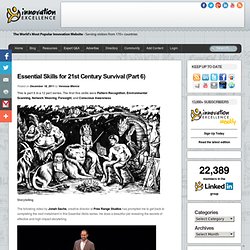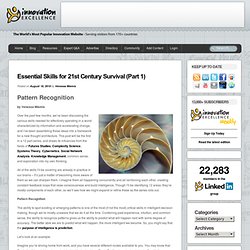

Devenir ingénieur informatique. Ingénieur informatique (ou ingénieur informaticien) est une appellation dite générique, c'est-à-dire qu'elle ne désigne pas de façon précise un métier ou une formation.

Être ingénieur, c'est être spécialisé et l'informatique couvre beaucoup de domaines d'activité. La notion d'ingénieur est souvent de niveau Bac + 5 ; nous sommes donc au niveau Master ; Piqûre de rappel : la Réforme LMD. Cependant, les niveaux diffèrent selon que vous avez ou pas une expérience professionnelle et selon la spécialité. Le Conseil National des Ingénieurs et Scientifiques de France classe les ingénieurs en trois catégories : Ingénieurs Diplômés (ID) d'écoles habilitées à délivrer le Diplôme d'Ingénieur en Informatique de la Commission des Titres d'Ingénieur. La Commission des Titres d'Ingénieur, plus communément appelée CTI, habilite les établissements à délivrer le diplôme légalement protégé.
Voici donc un panel d'informations de comment devenir et de ce que peut être un ingénieur informatique. Sommaire Bac + 2. La mobilité interne reste le reflet d'une politique d'entreprise. EN DIRECT Crash en Egypte : la Russie dément limplication de...

Un avion civil russe transportant 224 personnes s'est écrasé samedi en Egypte. Tous les... Claude Tendil : «? Nous avons créé les conditions pour sauver... Les partenaires sociaux ont signé laccord définitif pour le redressement des régimes de... Grèce : les principales banques ont besoin de 14,4 milliards... Un montant inférieur aux sommes prévues par les partenaires de la Grèce pour leur... Laccord sur les retraites complémentaires validé Ratifié par le patronat et trois syndicats (CFDT, CFTC, CFE-CGC), cet accord est destiné à... Essential Skills for 21st Century Survival (Part 6) This is part 6 in a 12 part series.

The first five skills were Pattern Recognition, Environmental Scanning, Network Weaving, Foresight, and Conscious Awareness Storytelling The following video by Jonah Sachs, creative director at Free Range Studios has prompted me to get back to completing the next installment in this Essential Skills series. He does a beautiful job revealing the secrets of effective and high-impact storytelling. Jonah Sachs at Compostmodern ’11 from AIGA San Francisco on Vimeo. One of the concepts Jonah presents is that of a “myth gap.”
Like now. Another way of saying this is that the cultural narrative is broken. Most of us are acutely aware of this current state of affairs, especially in the broader context of systemic change. As Jonah notes in the video, it’s marketers and designers who are closing this myth gap and infusing our culture with the new stories we can choose about how to live our lives and exist in the world. So what are some stories shaping culture today? Essential Skills for 21st Century Survival (Part 1) By Venessa Miemis Over the past few months, we’ve been discussing the various skills needed for effectively operating in a world characterized by information and accelerating change, and I’ve been assembling these ideas into a framework for a new thought architecture.

This post will be the first in a 12 part series, and draws its influences from the fields of Futures Studies, Complexity Science, Systems Theory, Cybernetics, Social Network Analysis, Knowledge Management, common sense, and exploration into my own thinking. All of the skills I’ll be covering are already in practice in our brains – it’s just a matter of becoming more aware of them so we can sharpen them. I imagine them all happening concurrently and all reinforcing each other, creating constant feedback loops that raise consciousness and build intelligence. Though I’ll be identifying 12 areas, they’re mostly components of each other, so we’ll see how we might expand or refine these as the series rolls out. Pattern Recognition.